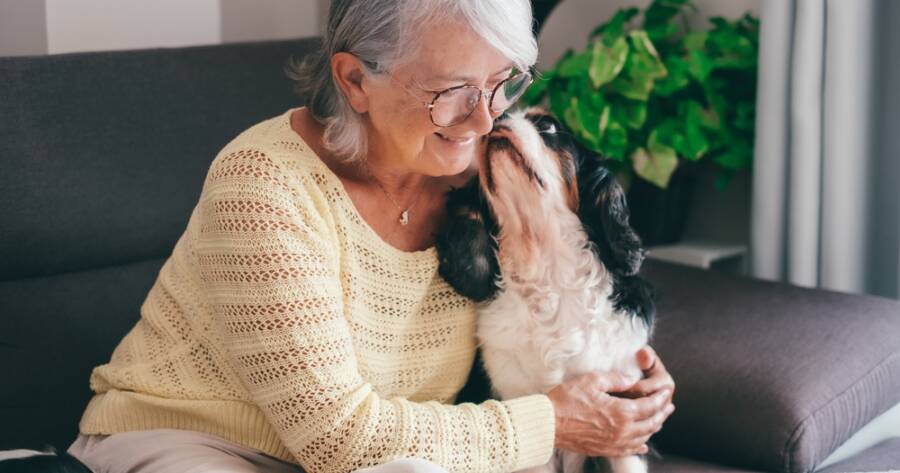A loyal pet can bring warmth, companionship, and joy into daily life, especially during retirement. For seniors, animals offer more than just cuddles; they provide a sense of purpose, reduce loneliness, and even promote better health. The right pet can fit perfectly into a quieter lifestyle, offering love without requiring too much upkeep. Whether it’s a calm cat, a gentle dog, or something smaller, finding a low-maintenance companion can make your home feel even more complete.
The Emotional and Health Benefits of Pet Ownership
Pets do wonders for mental and emotional well-being. Studies have shown that spending time with animals can reduce stress, lower blood pressure, and even boost mood. For seniors, pets often fill emotional gaps by providing unconditional love and constant companionship, especially for those living alone or far from family.
Beyond emotional perks, pets also encourage healthier habits. A daily walk with a dog promotes gentle exercise, while feeding and grooming routines add structure to the day. Caring for a pet can give seniors a renewed sense of responsibility and joy, enriching everyday life in countless small but meaningful ways.
Top Dog Breeds That Are Senior-Friendly
Not all dogs require hours of exercise and high-energy play. Breeds like the Cavalier King Charles Spaniel, Bichon Frise, and Shih Tzu are known for being affectionate, gentle, and relatively low-maintenance. These smaller dogs are easier to handle, adapt well to apartment living, and often thrive with moderate daily walks and lots of cuddle time.
Many seniors also appreciate breeds that don’t shed much or are hypoallergenic. Poodles, for example, come in toy or miniature sizes and are intelligent, loyal, and easy to train. When selecting a dog, it’s important to consider energy level, grooming needs, and temperament to ensure a smooth match.
Cat Companions: Quiet, Independent, and Loving
Cats make excellent companions for seniors who prefer a quieter, less demanding pet. They’re independent, require minimal grooming (especially short-haired breeds), and are perfectly content with indoor living. Breeds like the British Shorthair, Ragdoll, and Scottish Fold are particularly affectionate, calm, and easy to care for.
Cats don’t need to be walked, and litter box training is typically simple. Many seniors enjoy the soothing presence of a cat curled up nearby, as well as the companionship of a pet that doesn’t require constant attention. For someone seeking low effort with plenty of love in return, a cat can be an ideal choice.
Small Pets That Fit Any Lifestyle
For seniors with limited space, allergies, or mobility, smaller pets can still offer companionship without the physical demands of larger animals. Fish, birds, or hamsters can be enjoyable to care for and bring life to a room. Birds like budgies and canaries are sociable and often enjoy interacting with their owners, while fish offer a calming presence through their gentle movements.
These pets are typically easy to maintain and can be a good fit for those who may not want to handle walking or grooming. While the interaction may be different from a cat or dog, the sense of responsibility and enjoyment is still very much present.
Things to Consider Before Bringing a Pet Home
Choosing the right pet involves more than just preference–it’s also about lifestyle, health, and long-term planning. Seniors should consider factors like energy level, grooming needs, vet costs, and whether they travel often or live in a community with pet restrictions. It’s also a good idea to have a backup plan in case assistance with pet care becomes necessary.
Adopting an older animal from a shelter can be a wonderful option. Senior pets are often calmer, already trained, and looking for a loving home. Matching your lifestyle to the pet’s needs ensures a smoother experience and a bond that enhances daily life.
Resources and Support for Pet Owners
There are plenty of resources to help seniors become successful pet owners. Many communities offer pet adoption events, low-cost vet clinics, and pet-friendly housing options. Some senior living communities even welcome pets, recognizing the positive impact animals have on residents’ well-being.
Support networks like pet-sitting services, dog walkers, or mobile grooming can make daily care easier. Friends, family, or neighbors might also lend a hand when needed. With a little planning, having a pet is not only possible but it’s also deeply rewarding and worth the effort for the love and companionship they bring.
A Companion That Changes Everything
The right pet can transform a house into a home, filling it with warmth, laughter, and unconditional love. Whether it’s a snuggly lapdog, a graceful cat, or a peaceful tank of fish, a pet offers comfort and connection that supports emotional and physical well-being. With the right match, pet ownership after 60 can be one of the most joyful decisions of all, reminding us every day that love and companionship have no age limit.

